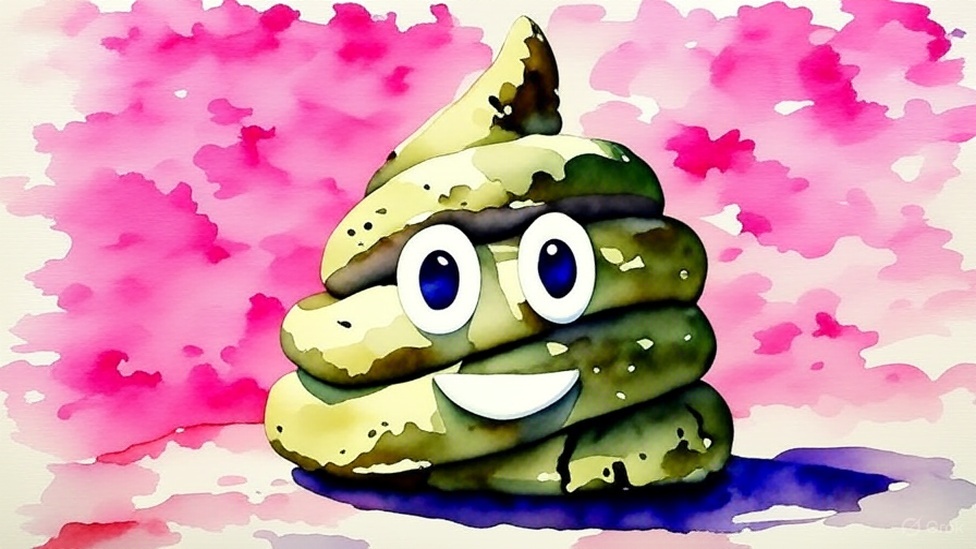A man approached the street vendor and asked, “How much?”
The seller replied, “Ten dollars for a good joke, five dollars for a bad one.”
Curious, the man asked, “What’s the difference? How do you decide if a joke is good or bad?”
The seller shrugged and said, “That’s up to you. It’s all a matter of perspective.”
Intrigued, the man decided to give it a try. “I’ll buy a bad joke,” he said, handing over five dollars.
He waited expectantly, but the seller remained silent. After a moment, the man nudged him. “Well? Where’s the joke?”
The seller looked at him and said, “Didn’t you get it? That was the joke. It was bad, wasn’t it?”
Joke Poo: “Reviews for Rent”
An influencer in the digital alleyway was yelling: “Reviews for rent, reviews for rent!”
A start-up founder approached the influencer and asked, “How much?”
The influencer replied, “Fifty dollars for a 5-star review, ten dollars for a 1-star review.”
Perplexed, the founder asked, “Why would anyone pay for a 1-star review? What’s the point of that?”
The influencer winked and said, “Undercutting the competition. Plus, people trust the bad ones more.”
Intrigued, the founder pulled out a ten-dollar bill. “Okay, I’ll take a 1-star review.”
He waited anxiously, but the influencer remained silent. After a few seconds, the founder coughed. “So… where’s my scathing review?”
The influencer smiled and said, “You already got it. Paying ten dollars for this? That’s a one-star business decision, isn’t it?”
Alright, let’s break down this joke and then inject some comedic plutonium to enrich it.
Joke Deconstruction:
- Premise: A street vendor is selling jokes, differentiating between “good” and “bad” ones with different price points.
- Setup: A customer is curious about the distinction between a “good” and “bad” joke, questioning the vendor’s criteria.
- Punchline: The vendor’s silence after the customer buys a “bad” joke, which is then revealed as the joke itself, fulfilling the “bad” criteria in a meta and unexpectedly literal way.
- Humor Type: Meta-humor, situational irony, and a bit of wordplay (the “bad” joke being both unfunny and the joke).
- Key Elements: Joke-telling, perception of humor, value, the act of purchasing something intangible, and expectation vs. reality.
Now, for the Enrichment! I’ll focus on the idea of selling humor and the subjectivity of a “good” vs. “bad” joke.
Enrichment Option 1: A Related “Did You Know” with a Twist
Original Joke Element: The selling of jokes as a commodity.
Did You Know (with a punchline): “Did you know that professional joke writers are a real thing? They’re essentially the ghostwriters of comedy, crafting one-liners for comedians, politicians, and even companies. However, the best joke writer in history may have been anonymous. The greatest joke ever supposedly written, the Aristocrats, became famous only by being told, retold, and riffed on by comedians themselves. Which reminds me, have you heard about the joke that was so good, it actually made a comedian quit? It was so good, he said nothing could top it. It was… a really, really good bad joke.”
Enrichment Option 2: A New Joke Inspired by the Original
Original Joke Element: The subjectivity of humor and the seller’s perspective.
New Joke:
A street artist was selling paintings. One was abstract splatters labeled “Deep Emotional Landscape,” and the other was a photorealistic portrait of a cat labeled “Five Bucks.”
A critic stopped by and sneered, “The ‘Emotional Landscape’ is clearly juvenile and derivative! The cat, however, displays technical skill, albeit commercial pandering.”
The artist sighed and said, “Exactly. The splatters are for me. The cat pays the rent. Now, which one is art and which one is a joke? Depends on who’s laughing.”
Enrichment Option 3: Witty Observation
Original Joke Element: The expectation of immediate gratification and the value of a joke.
Witty Observation: “Comedy is the only commodity where the packaging is often more expensive than the product. You pay more for the venue, the drinks, and the babysitter than you do for the actual punchline… and you hope there’s a punchline.”
Which is best? Option 1 (Did You Know) provides a relevant fact with a punchline twist that brings it back to the original joke’s meta-humor. It’s educational and funny!


